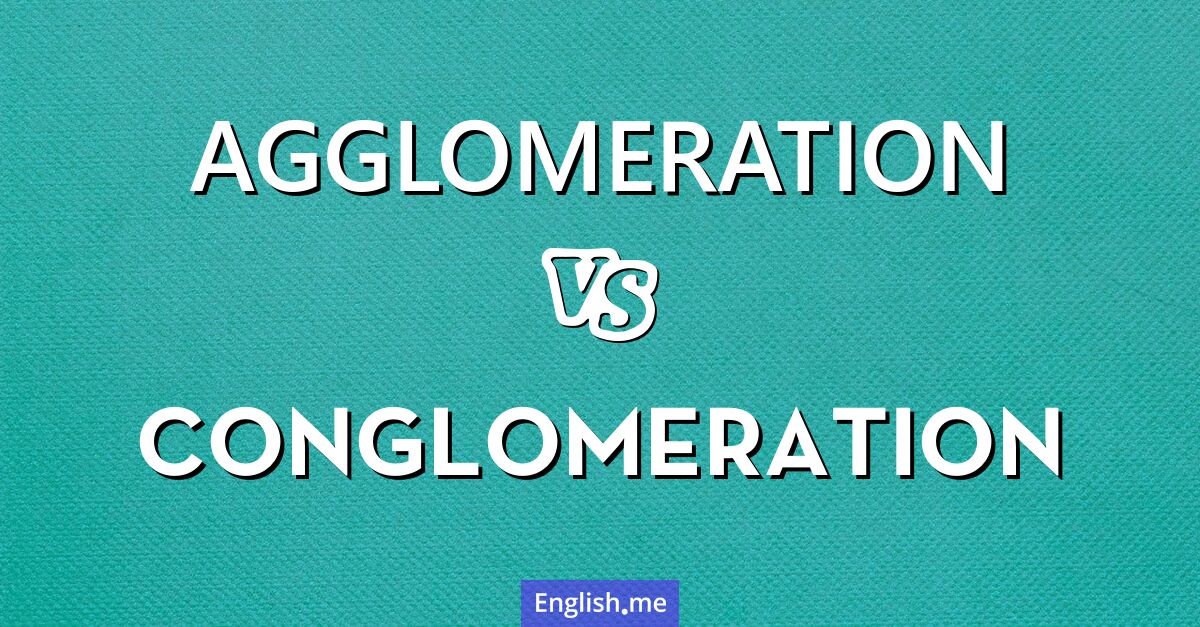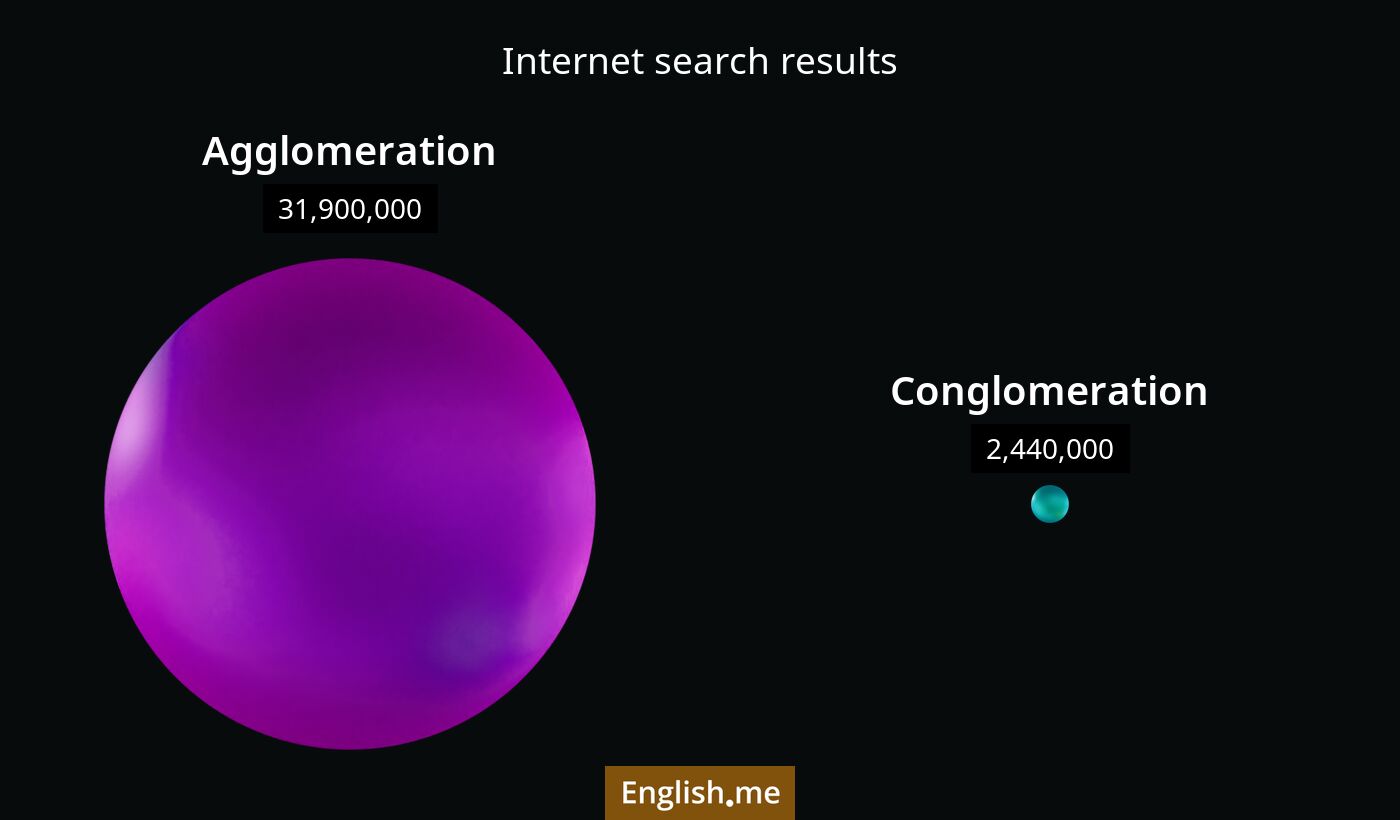"Agglomeration" vs. "conglomeration": exploring clusters and coalitions
Reviewed and edited by  Anwar Kareem 06/10/2024, 14:32
Anwar Kareem 06/10/2024, 14:32
English.me team member

 What is similar?
What is similar?
Both "agglomeration" and "conglomeration" refer to collections or groupings of things, often used to describe clusters or gatherings, typically of an economic or geographic nature.
 What is different?
What is different?
Agglomeration specifically refers to a mass or collection of things or people, often implying a degree of disorganization, and is commonly used in urban or economic contexts. Conglomeration emphasizes the merging or combination of diverse parts into a whole, often focusing on the diversity or heterogeneity of the elements within the group.
 Which one is more common?
Which one is more common?

 Examples of usage
Examples of usage
Agglomeration- The city's rapid agglomeration of industries has boosted its economy.
- An agglomeration of small shops occupied the downtown area.
- The urban planner studied the agglomeration effects on traffic flow.
- The conglomeration of various businesses under one corporate umbrella was strategic.
- A conglomeration of cultures can lead to a vibrant and diverse community.
- The museum's collection is a conglomeration of art from different periods and styles.

 English
English español
español française
française italiano
italiano deutsche
deutsche 日本語
日本語 polski
polski česky
česky svenska
svenska Türkçe
Türkçe Nederlands
Nederlands